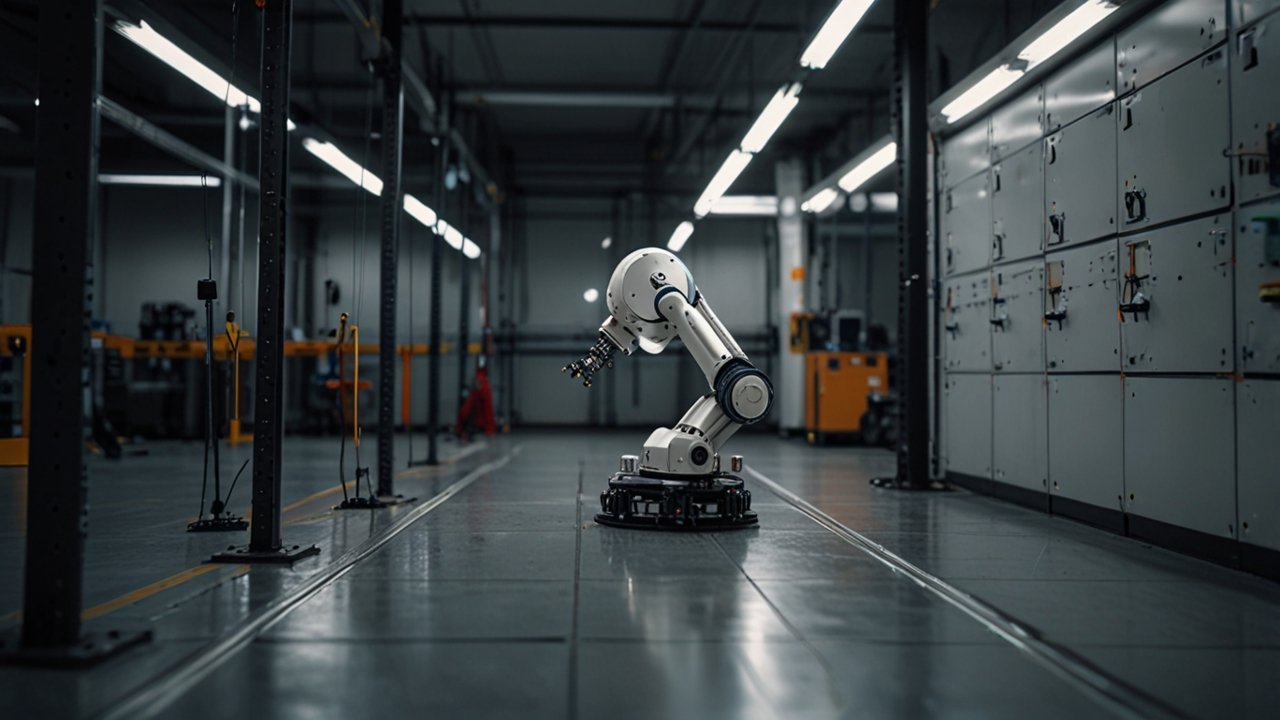AI Google: 7 Search Technologies 2025
Welcome to our comprehensive exploration of the latest search innovations driven by AI. In this article, you will discover how emerging solutions powered by artificial intelligence are reshaping the way we search for information online. We will cover historical breakthroughs, technical underpinnings, and real-world results that are transforming digital interactions.
Our discussion highlights major milestones, from early developments in machine learning to the current generation of sophisticated search capabilities. You will learn about the role of groundbreaking models, nuanced algorithmic methods, and global expansion that are setting new standards for the industry.
📑 Table of Contents
- Introduction to AI Google
- Evolution and History of AI Google
- How Google artificial intelligence Enhances AI Google
- Search AI Systems and Their Applications
- Real-World Case Studies of AI Google
- Machine learning in Modern AI Google Solutions
- Future Trends: Google technology and Beyond
- AI Google: A Fresh Perspective for the Digital Era
- FAQ
- Conclusion
Read on to learn how advanced technologies are not only reimagining search but paving the way for truly intelligent, context-aware digital experiences. We invite you to explore each section carefully and share your thoughts and queries.
Introduction to AI Google
In this section, we introduce the concept of AI Google and explore the significance of these revolutionary search technologies.
You will get a broad overview of how artificial intelligence is being integrated into everyday search experiences. The topic is presented in clear and accessible language for readers of all backgrounds.
For more information on related innovations, visit AI & Automation and Artificial Intelligence.
Fundamentals and Impact
The fundamentals of modern search innovation are rooted in the evolution of neural networks and machine learning. Early foundations, such as Google Translate and voice recognition in Google Assistant, paved the way for smarter search. With the advent of AI, search capabilities have become more personalized and context-aware. Users can now enjoy more relevant results with improved engagement. Statistics from a detailed study on Google’s official blog report that features like AI Overviews have led to a 10% usage increase in complex queries, notably in markets like the U.S. and India.
This breakthrough has driven major improvements in how content is indexed and retrieved. The powerful interplay of deep learning algorithms and expansive data centers ensures responses are not only fast but also intelligent. Today’s systems leverage historical data and predictive modelling to anticipate needs, delivering answers that are contextually precise. How do you think these advancements will influence your daily searches?
Moreover, these improvements empower advertisers and publishers to better target their audiences, driving both engagement and revenue. Advanced infrastructure such as TPUs and GPUs further bolster this transformation by reducing inference times significantly.
User Experience and Personalization
Personalization is at the core of the AI revolution in search. The integration of advanced learning models means that search engines now understand the nuances of human language. Using natural language processing techniques, responses can be tailored to individual preferences. Research indicates that algorithms like RankBrain and BERT have optimized how queries are interpreted, pushing the envelope on accurate content delivery.
Overall, users enjoy a more engaging and interactive experience as intelligent customization adapts to their unique browsing history and preferences. For instance, personalized recommendations and voice search empower users to get answers promptly. In this way, search transforms from a static retrieval process into a dynamic conversation. Have you experienced improvements in search personalization recently?
This evolution also results in faster decision-making processes in marketing and business insights. Not only are users seeing improved satisfaction, but enterprises benefit from faster, more precise analytics that drive improved outcomes.
Evolution and History of AI Google
This section delves into the evolution and history of AI Google technologies, tracing the journey from early experiments to the current state of advanced search. We examine significant milestones that have shaped its development.
We will explore key innovations and turning points ranging from the acquisition of DeepMind to the integration of generative AI models. This historical perspective provides a deeper understanding of how far the technology has come.
For an expansive view, check out Automation Technologies to see related trends in technology.
Early Innovations and Milestones
Google’s commitment to advanced search began several decades ago when the company first integrated machine learning into its core products. In 2014, the acquisition of DeepMind accelerated the progress of neural networks and natural language processing. Early applications such as Google Translate, voice recognition in Google Assistant, and personalized recommendations in YouTube established the foundation for future breakthroughs.
The invention of RankBrain in 2015 marked a pivotal moment. This AI-driven search algorithm enabled a better interpretation of user queries through machine learning techniques. It dramatically improved search accuracy and led to effective refinements in query processing. Additionally, the introduction of BERT in 2019 further revolutionized search by enabling the system to understand context and language nuances deeply. These milestones represent crucial steps on the road to smart, AI-powered search systems.
Do you think early AI innovations have set the stage for today’s intelligent search solutions?
Generative AI and Modern Progress
Modern search technologies are now being reimagined using generative AI models such as Gemini. The latest developments include features like AI Overviews and AI Mode, which extend far beyond traditional search results, offering comprehensive, context-aware responses. According to Google’s generative AI update, these features have led to a significant increase in usage for complex searches.
This revolution in search is supported by powerful processing hardware, including TPUs and GPUs, which are critical for training and running these massive models. The role of advanced architectures like AlphaEvolve from DeepMind is also noteworthy; designed to optimize data center efficiency and chip design, it has shown improvements of up to 33% faster GPU-level code execution. These advancements ensure that responses are not only quick but exceptionally insightful.
How might these improvements impact the way we experience search on a daily basis?
How Google artificial intelligence Enhances AI Google
This section explains how Google artificial intelligence drives enhanced search mechanisms within AI Google. We analyze the technical components that power these next-generation search features.
Engineered innovations such as natural language processing, predictive modeling, and image recognition have transformed traditional search methods into highly advanced systems. The result is a seamlessly interactive experience.
For further insights into technical innovations, check out Cutting-Edge Technologies.
Core Technologies and Capabilities
At the heart of advanced search is the Gemini 2.5 model. This multimodal AI is capable of processing text, images, video, and audio simultaneously. It excels at complex reasoning and is designed to deliver industry-leading performance on benchmarks such as GPQA and AIME 2025. Such breakthroughs drive enhanced relevance and context in search results.
The integration of Query Fan-Out techniques also plays a pivotal role. This approach decomposes user queries into sub-questions, resulting in deeper and more relevant answers. Additionally, core technologies such as Natural Language Processing (NLP) and Image Recognition transform how users interact with interfaces. Together, these advancements empower search engines to offer personalized and dynamic experiences.
Beyond just answering queries, these intelligent systems provide contextual hints and predictive suggestions. Would you be interested in how this technology personalizes your own search results?
Infrastructure and Operational Efficiency
Operational efficiency is boosted by custom hardware like TPUs and GPUs that significantly lower processing times. According to research shared on Google’s Search Central, such hardware enhancements have slashed inference time by over 50% in some applications.
Moreover, the AlphaEvolve algorithm, designed by DeepMind, plays a crucial role in optimizing data center performance. This system has led to a measurable 1% global increase in compute efficiency along with even more dramatic improvements at the chip level. These technical optimizations allow Google artificial intelligence to support increasingly sophisticated search queries at scale.
How does enhanced operational efficiency change your perspective on the future of search?
Search AI Systems and Their Applications
This section investigates search AI systems and their real-world applications. We dive into diverse use cases where intelligent search transforms interactions in everyday business and public sectors.
From customer service to public sector innovation, these systems touch every facet of digital life. The evolution of AI-driven search brings more clarity, efficiency, and personalized outcomes.
For more industry insights, visit Innovative Technologies.
Advanced Search Features in Practice
Recent advances in search have led to features such as AI Overviews and AI Mode. AI Overviews generate concise, comprehensive summaries for complex queries. For example, in the United States and India, this feature has driven a 10% increase in usage of complex queries. Users benefit from summarized content combined from multiple sources, ultimately improving the overall search experience.
AI Mode enhances the system’s ability to handle follow-up questions and interpret multimedia content due to Gemini 2.5’s advanced capabilities. Deep Search, an extension of this mode, uses query fan-out techniques to break down complex questions into digestible subtopics. Such techniques ensure that even multifaceted queries are addressed thoroughly with context-aware responses.
Have you encountered an intelligent summary that saved you time while searching online?
Applications Across Industries
Search AI is not confined to a single industry. In the realm of public services, AI-driven search facilitates real-time information delivery and increased accessibility. Government agencies in Australia, as detailed in reports by Google’s AI updates, are using these systems to improve service delivery, ensuring citizens receive prompt and accurate information.
In the commercial sphere, businesses leverage these systems for faster decision-making. Enhanced search solutions enable precise marketing analysis and improved customer service responses. With predictive modeling and machine learning, enterprises now gather insights that lead to more targeted campaigns and product strategies.
Do you see yourself benefiting from a search system that optimally tailors results to your needs?
Real-World Case Studies of AI Google
This section reviews real-world case studies that demonstrate the power of AI Google systems. We examine how various industries are successfully implementing these advanced technologies.
Case studies highlight increased website traffic, enhanced publisher engagement, and public sector innovations that offer tangible benefits. There is a growing appreciation for how intelligent search changes outcomes.
For more practical examples, explore Emerging Trends in technology.
Impact on Publisher Traffic and User Engagement
Case studies have shown that publisher websites featured in AI Overviews experience a significant increase in user engagement. Research indicates that these pages receive more clicks compared to traditional listings. This growth in traffic is primarily attributed to the enhanced visibility of diverse content sources curated by intelligent summarization tools.
For instance, detailed analysis from AIMultiple’s research reveals that websites experienced an upward trend of engagement following the rollout of AI-enhanced summaries. Users tend to appreciate the curated and concise information, which reduces the need for multiple searches.
How would increased traffic on your favorite website change the way you access information?
Comparison Table of Notable Case Studies
Comprehensive Comparison of Case Studies
| Example | Inspiration | Application/Impact | Region |
|---|---|---|---|
| AI Overviews | Machine Learning Trends | Increased click-through and engagement by 10% | U.S., India |
| AI Mode | Generative AI Models | Enhanced context and follow-up questioning | U.S. |
| Deep Search | Query Fan-Out Technique | Breaks complex queries for better relevance | Global |
| Project Astra | Universal AI Assistance | Real-time cross-platform support | Global |
| AlphaEvolve | DeepMind Framework | Optimized efficiency by up to 33% | Global |
These case studies provide valuable insights into how different sectors leverage intelligent search to provide enhanced user experiences. Have you noticed changes where you routinely search online?
Machine learning in Modern AI Google Solutions
This section focuses on the role of machine learning in powering modern AI Google solutions. We explain how machine learning underpins several intelligent functionalities.
The integration of advanced predictive modeling and deep neural networks has transformed search efficiency and accuracy. This section breaks down the technical elements of these systems.
For more trends, see relevant updates on Artificial Intelligence.
Predictive Modeling and Advanced Analytics
Predictive modeling in modern search systems employs vast historical datasets to forecast user behavior and provide tailored query suggestions. Machine learning algorithms process these datasets to recognize patterns that improve autocomplete suggestions and personalized search results. This approach has significantly elevated user satisfaction, ensuring results are always relevant. For example, detailed insights from Google’s official blog reveal that predictive techniques have contributed to more refined search outputs.
Advanced analytics combine these insights with real-time data to tweak and optimize search algorithms dynamically. With each query, the system continuously learns, thanks to feedback loops and data inputs, enhancing accuracy over time. Could such predictive insights transform the way you interact with digital content?
This constant data processing enables companies to deploy search models that adapt swiftly to trends, making the online experience increasingly intuitive. The benefits are visible in improved engagement metrics and overall customer satisfaction.
Deep Neural Networks and Continuous Improvement
Deep neural networks are the backbone of modern AI-driven search. These models are trained on enormous datasets and use multiple hidden layers to interpret complex query components. Their ability to decipher nuances in language and context is unmatched. They play a crucial role in systems like Gemini 2.5, where the processing of multimedia content is simultaneous.
Every interaction provides fresh data, enabling these networks to continually refine their responses. Continuous learning ensures that even subtle changes in language or emerging trends are rapidly incorporated into the model. This self-improving capability not only advances search accuracy but also drives innovation in product development and targeted advertising. How do you feel about a search engine that learns and evolves with every query?
By integrating deep neural networks, companies leverage a robust framework that enhances operational efficiency and delivers superior results day after day.
Future Trends: Google technology and Beyond
This final section looks forward to emerging trends in AI Google solutions and explores future possibilities. The discussion covers both technical advancements and regulatory considerations influencing the evolution of intelligent search systems.
Future innovations will include agentic capabilities, real-time multi-modal interactions, and further localization. These trends are set to redefine the search landscape industry-wide.
To explore similar themes, visit Innovative Technologies for more updates.
Emerging Capabilities and Agentic Systems
Looking ahead, search systems are expected to become even more autonomous. Emerging capabilities such as Project Mariner and enhanced Project Astra are paving the way for task-oriented AI agents. These agents will be capable of handling complex workflows like booking travel tickets and managing daily schedules autonomously. Future systems will combine real-time data processing with machine learning algorithms to create a cohesive, interactive digital assistant.
Recent predictions from Google Cloud’s transformation insights suggest that these developments will transform digital interactions across multiple platforms. Privacy, data transparency, and regulatory issues will play a significant role as companies strive to provide both advanced functionality and secure, ethical AI interactions.
Do you envision a future where your digital assistant handles complex tasks with ease?
With agentic systems on the horizon, the future of search is both exciting and uncertain, full of potential for innovative user experiences.
Regulatory and Ethical Considerations
As intelligent search systems become more integrated into our lives, regulatory and ethical frameworks must evolve concurrently. Ongoing debates about data privacy, algorithmic transparency, and the impact on content publishers are becoming increasingly critical. Different regions are adopting distinct approaches to regulate the use of AI in search, balancing innovation with ethical responsibilities.
Reports from Google Cloud’s public sector innovation update highlight regulatory challenges while suggesting that ethical guidelines are gradually being standardized. Generally accepted trends indicate that global cooperation on data privacy and security will become more prominent in the coming years.
How should regulatory frameworks adapt to ensure that technology grows responsibly while still delivering groundbreaking results?
The convergence of ethical considerations and rapid technological progress may set the tone for a more balanced future, melding innovation with accountability.
AI Google: A Fresh Perspective for the Digital Era
This section provides an engaging glimpse into the remarkable evolution of search and how it is redefining our digital interactions. The focus is on exploring fresh insights and a novel perspective regarding the progress and innovation in the online landscape. Over the years, breakthrough developments have changed the way information is obtained, transforming conventional methods into dynamic, interactive processes. With the latest advancements, users benefit from streamlined methods of processing complex queries, resulting in optimized content retrieval and unparalleled precision. The evolution in digital search strategies has created an environment where technology adapts quickly to emerging trends, ensuring that user needs are consistently met with both accuracy and efficiency.
Innovative systems continuously learn from extensive datasets, ensuring that every interaction contributes to a more responsive and intuitive framework. Furthermore, increased data processing speed and reduced operational delays have revolutionized the landscape, making information retrieval almost instantaneous despite the growing complexity of queries.
An exciting aspect is the potential for future design integration that promises even greater improvements in everyday digital interactions. It is clear that the journey of this technology is far from complete, and every advancement brings forth the opportunity for more creative implementations and smarter solutions. This fresh look encapsulates both the achievements and the exciting possibilities that lie ahead, inviting readers to reflect on these developments as a precursor to a transformative digital era.
As the industry advances, the collective vision pushes the boundaries of convention, setting the stage for an era defined by adaptability and intelligent innovation. Witnessing these changes encourages deep reflection on how technology will ultimately shape our engagement with the world around us.
FAQ
What drives the evolution of AI in modern search engines?
Modern search engines leverage advanced neural networks, machine learning algorithms, and big data analytics to understand user intent and deliver context-aware, personalized results.
How does AI improve user personalization in search?
AI systems analyze historical user data, incorporate natural language processing, and use predictive modeling to tailor search results to individual preferences, leading to more relevant and engaging content.
What are the primary benefits of features like AI Overviews?
AI Overviews provide concise summaries for complex queries, combining information from multiple sources. This leads to increased engagement, improved click-through rates, and faster access to comprehensive answers.
How do companies ensure operational efficiency in AI-powered search?
Companies deploy advanced infrastructure such as TPUs and GPUs alongside AI-designed algorithms like AlphaEvolve to reduce processing times and enhance compute efficiency.
What future trends can we expect in intelligent search technologies?
Future trends include the rise of autonomous agentic systems, real-time multi-modal interactions, and increased regulatory focus on data privacy and ethical AI implementation.
Conclusion
In summary, the evolution of AI Google search technologies continues to revolutionize the digital landscape by combining advanced machine learning with powerful infrastructure. The integration of technologies such as Gemini 2.5, AI Overviews, and AI Mode are setting new benchmarks for relevance and user engagement.
Every stage of this evolution—from early innovations to modern real-world applications—demonstrates significant improvements in speed, efficiency, and personalization. The future trends we explored promise to further push these boundaries and create even more intelligent, responsive systems.
We invite you to share your thoughts and experiences on how these intelligent systems have improved your online interactions. Have you experienced faster search results or more personalized recommendations lately? For more information or to discuss further developments, please Contact.
Your feedback and insights help drive the conversation forward and inspire continued innovation.




















Leave a Reply